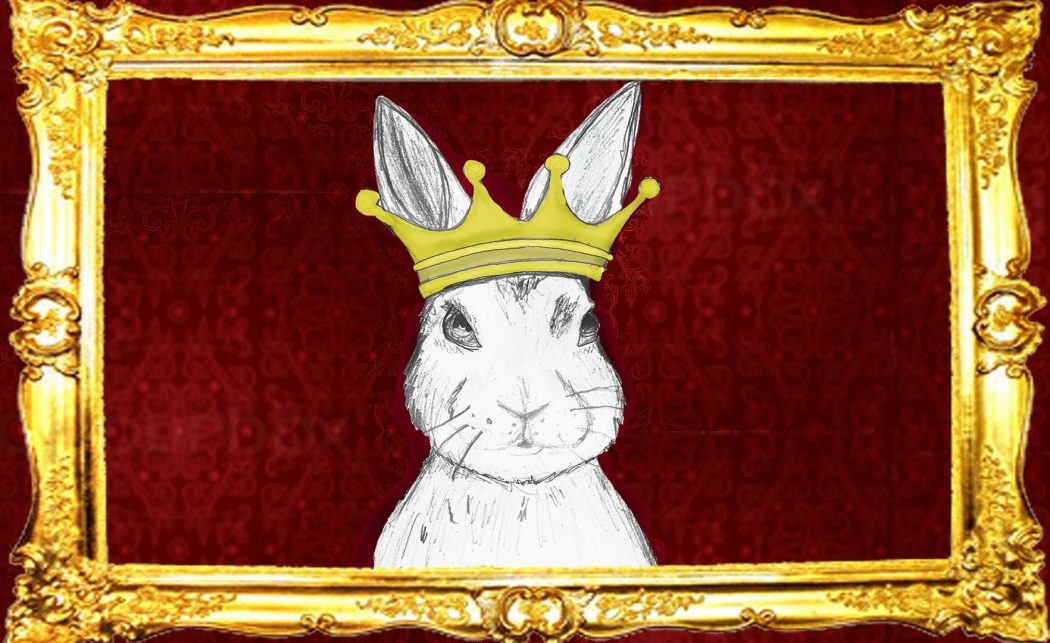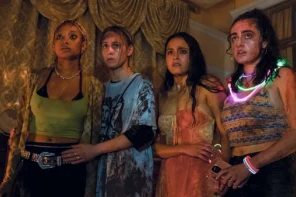Yorgos Lanthimos’ new film, The Favourite, is a delight. Nominated for ten Academy Awards last week, it’s a lavish costume piece rich with witticisms and one-two-punches, pulled mostly by its three exquisite leads: Queen Anne (Olivia Colman), Duchess Sarah Churchill (Rachel Weisz), and lady-in-waiting Abigail Hill (Emma Stone). Yet for all of that droll British humour, there’s something unsettling about this film — not an unfamiliar feeling from a Lanthimos picture. The movie presses its fingers on a pulse point, questioning how sex can be used to blur the line between loyalty and deceit, as Sarah and Abigail feud for Queen Anne’s affections.
The movie presses its fingers on a pulse point, questioning how sex can be used to blur the line between loyalty and deceit, as Sarah and Abigail feud for Queen Anne’s affections.
In The Favourite, sex is currency, and when well-spent, it can get you to high places. As Queen Anne’s second-in-command, Sarah is the puppet master of the Monarchy — the Cheney to Queen Anne’s Bush, if you will, though she’s definitely better with a gun. Their secret sexual liaison holds dual purpose: it appears to be a genuine display of love, while also maintaining Sarah’s tight grip on English politics, especially during the contention of wartime.
When her cousin Abigail arrives at the castle — dirt poor, ostracized from high society, in need of a job — Sarah reluctantly brings her in to work. Guileful but seemingly innocent, it’s only when Abigail addresses the Queen for the first time that we feel her slipping past a vestibule of corruption: “I’m sorry, your Majesty,” she says, conveniently letting out a cough as the Queen, thighs swollen with gout, walks past. “I think I caught a chill picking the herbs for your leg.” Abigail’s eventual entanglement with Anne disrupts the inner-monarchal social order.
When boiled down, The Favourite is mostly a story about ulterior motives.
When boiled down, The Favourite is mostly a story about ulterior motives. There is no such thing as unconditional love in this 18th century bubble, because people want things, and when they happen to give, they expect something in return. That’s the essence of the conflict between Abigail and Sarah, both of whom have reason for fighting to be Anne’s favourite. Abigail doesn’t really love the Queen the way Sarah does, but she has personal interests that can only be attended to if she climbs the ranks. Sarah, though she really does seem to love Anne, prioritizes her political interests. “Love has limits,” she tells Anne in one scene. In the next, she declares: “The love of your country? To me, there is no limit on that.”
It’s for this reason that love, abstract as it is, is mostly expressed through sexual transactions or sweet nothings; they’re tangible commodities that can be exchanged when needed. Men are periphery players in this film, but when they are present it’s because they want to be part of that exchange. Devious Opposition leader Robert Harley (Nicholas Hoult, stealing every one of his scenes) and baron Samuel Masham (Joe Alwyn) see such an opportunity, tasking the latter with seducing apolitical Abigail, who is now in the Queen’s inner circle, having seduced her herself. Sarah has to one-up their efforts to sway the Queen’s political temperament by using her own seduction skills. Meanwhile, Queen Anne is just having a lot of sex and eating until she wretches. Good for her!
For all of Anne’s faults and extravagances, her vices originate from insecurity, ill health, and grief. She has been unable to produce an heir for England, having lost a whopping 17 children at varying stages of development. Her gout, which in itself is a sign of excess, worsens by the day. Sure, she has the disposition of a small child, but she also appears to have a conscience. Whether this is because she actually cares or because she wants to be beloved is hard to say because, again, all of these characters are two-faced. At one point, the Queen suggests having commoners come to the Palace to voice their opinions and have their concerns heard —you know, like a democracy— and Sarah promptly shuts her down, as that is not how the Monarchy’s affairs are conducted: “People are led. They do not lead.”
It is thus fascinating to watch Sarah and Abigail navigate their delicate balancing acts. They must be vicious with each other, and gentle with the Queen, but that proves to be an increasingly demanding task. Much like a sports game, we see each woman collecting points in a wildly entertaining back and forth, constantly trying to usurp the other — but they have different playbooks, because they want different things.
The Favourite finds many different uses for sex. It uses it for laughs, certainly; there’s an incredibly funny handjob scene that is not to be missed. It uses sex to leverage, to manipulate, to silence, to pleasure, and to survive, sometimes all at once.
On Abigail’s agenda, we don’t find love of country or political motive, but rather herself — her greatest aspiration is to ascend back into the high society that she knew as a child, before her father ruined her life. She would do whatever it takes: try to sabotage Sarah, marry dopey Masham for social standing, and occasionally go down on the Queen. As Abigail spends more time with Anne, dutifully absorbing her weaknesses and anxieties, she knows just which strings to pull. Sarah is more concerned with protecting Anne: “I will not lie,” she firmly tells her. “That is love.” But in Sarah’s brutal honesty the Queen feels mounting disdain, and in Abigail’s saccharine endearments she sees adoration.
The Favourite finds many different uses for sex. It uses it for laughs, certainly; there’s an incredibly funny handjob scene that is not to be missed. It uses sex to leverage, to manipulate, to silence, to pleasure, and to survive, sometimes all at once. The moral line-toeing and power struggling certainly makes for an entertaining race between its three leads, but the finish line is where the film is most disquieting: the promise of a caught-up conscience awaits.








